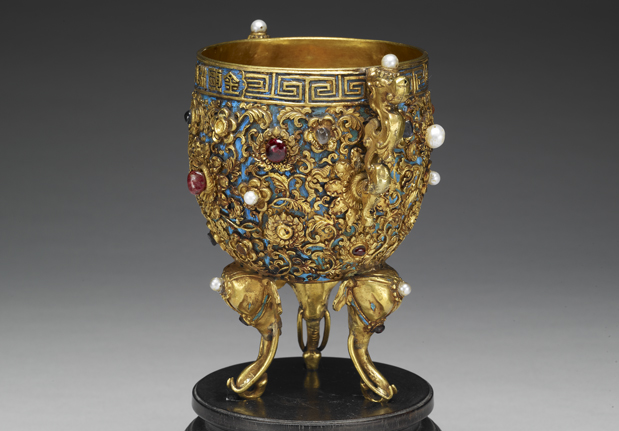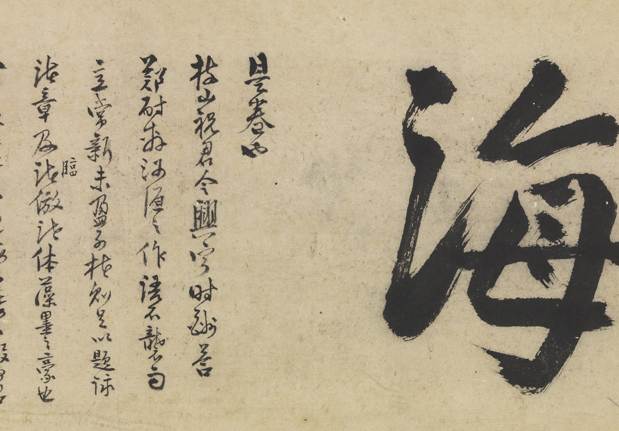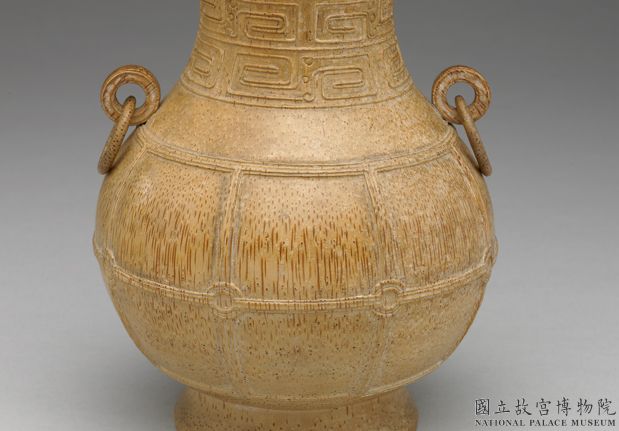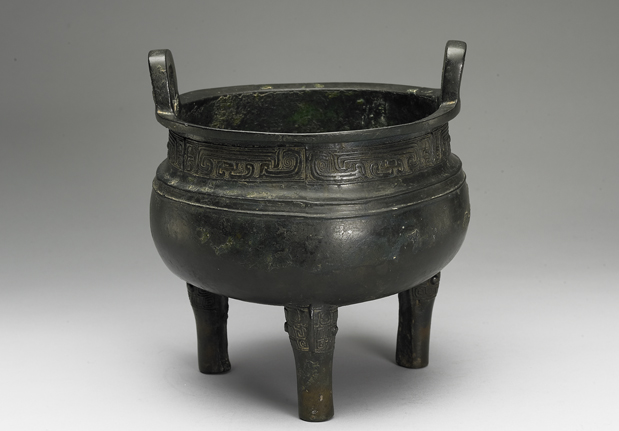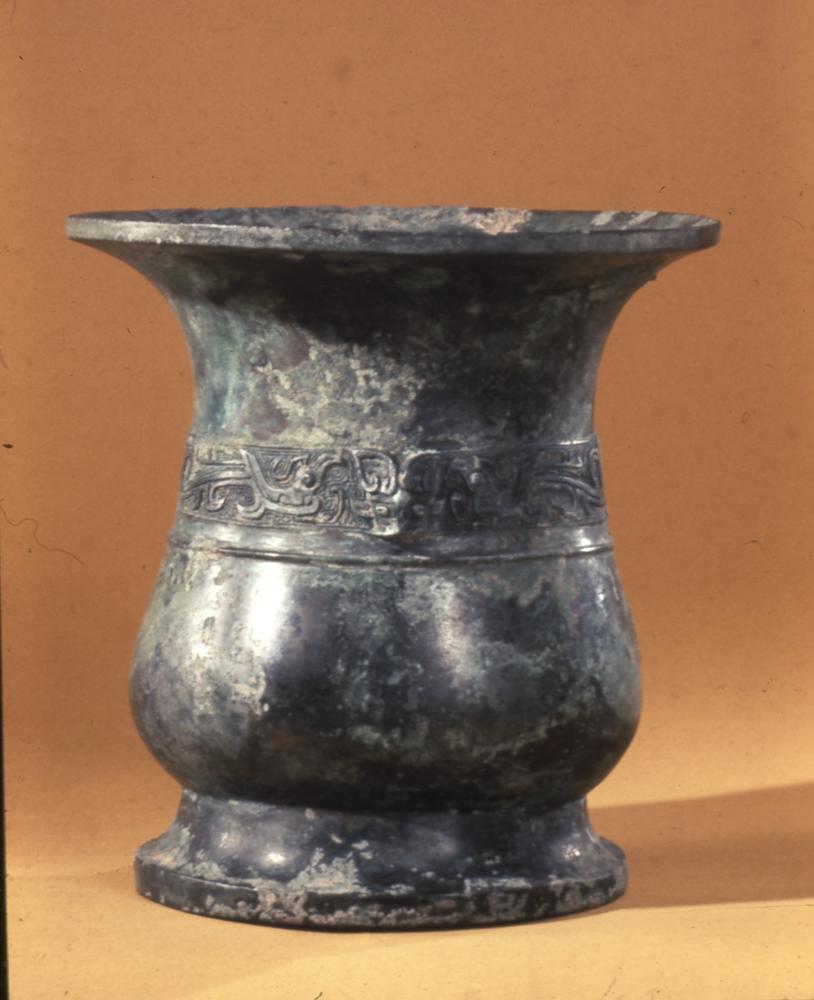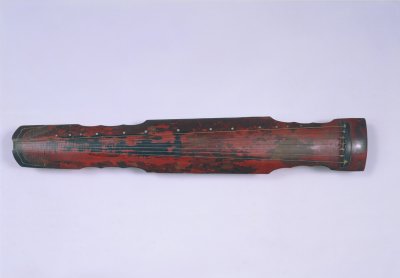Period:Eastern Zhou dynasty Production date:8thC BC-2ndC BC
Materials:jade
Technique:carved, incised, drilled, polished, bevelled,
Subjects:dragon
Dimensions:Length: 5.30 centimetres Width: 2.80 centimetres
Description:
Columnar bead of semi-translucent yellow jade with brownish inclusions and surface calcification.
IMG
![图片[1]-bead BM-2022-3034.152-China Archive](https://chinaarchive.net/Eastern Zhou dynasty/Jades/348_.jpg)
Comments:The trumpet-shaped bead tapering gently is cut flat at either end. The bead is carved in two distinct sections each with two rows of confronting dragon’s heads carved with raised rounded angular C-scrolls and incised with hooked curls, circles and cross-hatched areas. The two sections are divided with a band of chevron motifs enclosed within plain rims. The ends are similarly decorated with C-scrolls, curls and cross-hatched areas with bevelled inner and outer rims. An off-centered perforation has been drilled from the wider end through the length of the bead, the inner surface with drill grooves visible. See Rawson 1995, p.274, cat.no.17.17. This long bead has a slightly concave profile and tapers from a wide top to a narrower base. (It may of course have been hung the other way up). A vertical hole is drilled from both ends. A band of chevrons around the centre divides the bead into two sections, both of which are ornamented with irregular c-shaped scrolls in relief, that reflect the light from their polished surface. Remains of the dragon or tiger heads that inspired such designs can be seen in the incised eyes interspersed among the scrolls. This form of relief is typical of the 5th century BC and can be paralleled on jades from the tombs of the Marquis of Cai at Anhui Shou xian and of the Marquis Yi of Zeng at Sui xian in Hubei province. Beads of this type would presumably have formed part of a complex of jades hung as a pendant from the waist.
Materials:jade
Technique:carved, incised, drilled, polished, bevelled,
Subjects:dragon
Dimensions:Length: 5.30 centimetres Width: 2.80 centimetres
Description:
Columnar bead of semi-translucent yellow jade with brownish inclusions and surface calcification.
IMG
![图片[1]-bead BM-2022-3034.152-China Archive](https://chinaarchive.net/Eastern Zhou dynasty/Jades/348_.jpg)
Comments:The trumpet-shaped bead tapering gently is cut flat at either end. The bead is carved in two distinct sections each with two rows of confronting dragon’s heads carved with raised rounded angular C-scrolls and incised with hooked curls, circles and cross-hatched areas. The two sections are divided with a band of chevron motifs enclosed within plain rims. The ends are similarly decorated with C-scrolls, curls and cross-hatched areas with bevelled inner and outer rims. An off-centered perforation has been drilled from the wider end through the length of the bead, the inner surface with drill grooves visible. See Rawson 1995, p.274, cat.no.17.17. This long bead has a slightly concave profile and tapers from a wide top to a narrower base. (It may of course have been hung the other way up). A vertical hole is drilled from both ends. A band of chevrons around the centre divides the bead into two sections, both of which are ornamented with irregular c-shaped scrolls in relief, that reflect the light from their polished surface. Remains of the dragon or tiger heads that inspired such designs can be seen in the incised eyes interspersed among the scrolls. This form of relief is typical of the 5th century BC and can be paralleled on jades from the tombs of the Marquis of Cai at Anhui Shou xian and of the Marquis Yi of Zeng at Sui xian in Hubei province. Beads of this type would presumably have formed part of a complex of jades hung as a pendant from the waist.
© Copyright
The copyright of the article belongs to the author, please keep the original link for reprinting.
THE END
